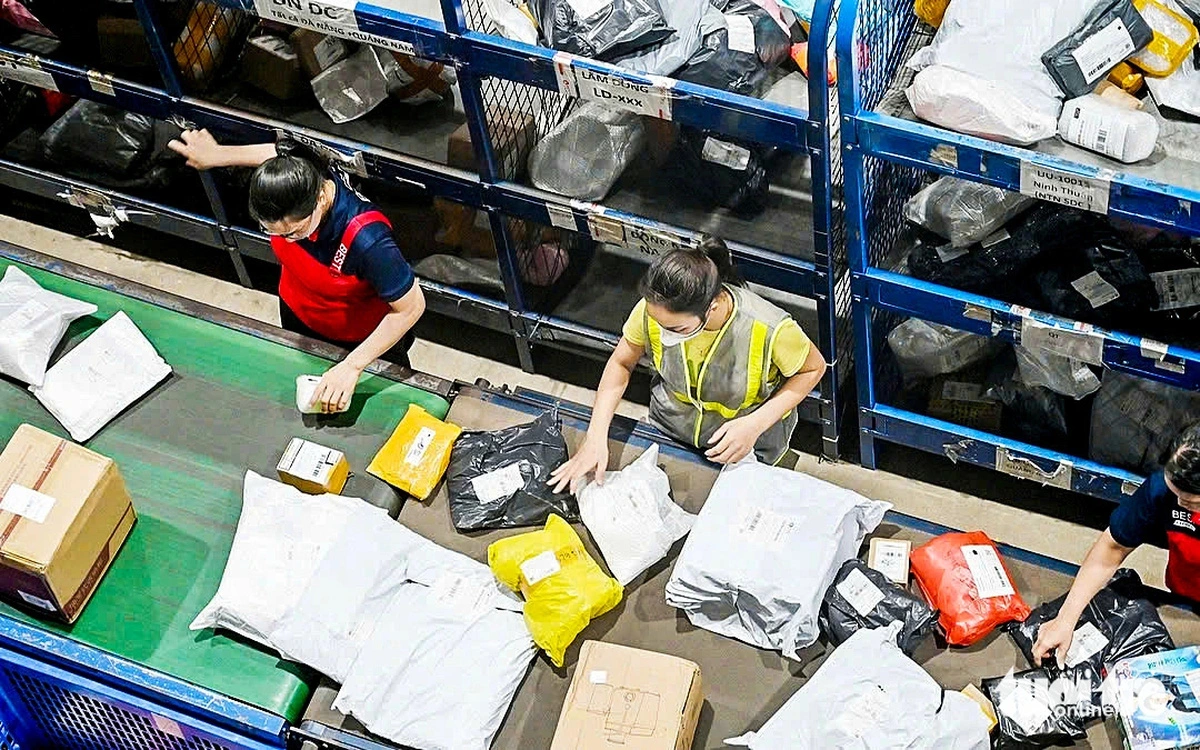Over the past two weeks, Vietnamese consumers can easily bump into advertisements for Chinese e-commerce platform Temu which offers low-cost products and discounts of up to 90 percent, while the platform has yet to get a license to operate in Vietnam.
The Vietnam E-commerce and Digital Economy Agency under the Ministry of Industry and Trade informed that it did not receive Temu’s application for a license until October 24.
In other words, Temu has sold goods in Vietnam without a license since early this month.
Temu is an arm of China’s PDD Holdings, a leading retail group in the world.
It has followed predecessors like Taobao, 1688, and Shein to conquer the Vietnamese market.
Such a large e-commerce platform operating publicly in Vietnam without a license is an issue of concern.
Tran Van Lam, a member of the National Assembly’s Finance - Budget Committee, said the issue proves loopholes in management and law enforcement.
Regulations on the management of e-commerce platforms are sufficient. Therefore, it is impossible for foreign firms to enter Vietnam and operate e-commerce platforms without announcements nor business registration, Lam noted.
This is a management problem that needs solving, the official added.
Vietnam has tools, including technologies, to inspect cross-border e-commerce platforms in a bid to prevent the illegal operation of websites and platforms in the country, according to Lam.
Tran Hoang Ngan, a National Assembly deputy from Ho Chi Minh City, voiced his support of cross-border e-commerce platforms but raised his concern over the loose management of foreign e-commerce platforms and their illegal operations.
If they have yet to register their operations in Vietnam and fail to pay taxes, the fairness in business will be hurt, hitting local small and medium enterprises.
It is needed to enhance inspections to prevent trade frauds and tax evasions and to ensure fairness and transparency.
Such channels will put domestic small and medium enterprises at a disadvantage, so such channels must be controlled closely, Ngan suggested.
Deputy Minister of Industry and Trade Nguyen Sinh Nhat Tan told Tuoi Tre (Youth) newspaper that the ministry had tasked relevant units with reviewing the operation of Temu in Vietnam.
The ministry manages all imported goods to protect locally-made products.
For modern distribution channels, especially e-commerce platforms, special policies are needed.
Amid the complicated development of cross-border e-commerce platforms, the Ministry of Industry and Trade has employed various management solutions, including submitting a draft plan to intensify the management of e-commerce.
In particular, the ministry proposed building specialized laws and amending regulations on tax exemptions for goods imported via express delivery services.
The ministry has asked the Vietnam Directorate of Market Surveillance to coordinate with the General Department of Vietnam Customs to closely control goods on cross-border e-commerce platforms.
The Vietnam Competition Commission is responsible for protecting consumers and educating them about the risks of cross-border online shopping.
The Ministry of Industry and Trade will propose solutions to supervise goods on e-commerce platforms that fail to comply with Vietnam’s law.
Temu is now present in 78 countries and territories.
Although Temu has yet to officially announce its entrance into the Vietnamese market, local consumers can download the Temu app, buy products, and make payments.
From nothing at the beginning of September 2022, Temu’s monthly gross merchandise value surged to some $4 billion in mid-2024.
Like us on Facebook or follow us on Twitter to get the latest news about Vietnam!


















































